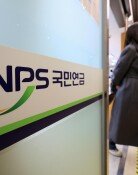[Editorial] All Eyes on Efforts to Balance "Left-leaning Modern History"
[Editorial] All Eyes on Efforts to Balance "Left-leaning Modern History"
Posted January. 06, 2005 22:45,
Work to shed light on the Republic of Koreas history from a positive standpoint is being done earnestly. At a time like this when there are increasingly worrying voices over the ruling circle`s tailoring of Koreas past, the work deserves attention in the context of ongoing efforts to implement a "self-restoration of history." Preliminary study results will be reportedly released in a book and textbook forum, a network of intellectuals in the field, will be officially launched late this month, raising expectations for their outcome.
Since the 1980s, some in academia have expressed their left-leaning views on the culprit behind the division of Korea, the establishment of the Republic of Korea, the 1948 system, where the responsibility lies for the Korean War, and industrialization in ex-President Park Jung Hee`s era. Their points of view have served as an ideological basis for some political activists acceptance of anti-Americanism and North Korean Juche ideology, or autarchy. There even have been concerns that the groups views are being induced indiscriminately to middle and high school students through awareness lectures provided by certain teachers groups.
It is hard to overlook that their left-leaning delineations have been mentioned and distributed as if they were absolute truth, particularly through media for the ruling circles since the inauguration of the incumbent administration. It is equally true that Koreas modern history has been noted as being overly nationalistic and independence-oriented, defying objective descriptions of history, due to its original sin, its occupation by imperialist Japan and the partition of the Korean peninsula.
The massive efforts by senior scholars in their 40s and 50s to study Koreas modern history carry a more than special meaning. Thats because a group of scholars in such diverse fields as political science, sociology, economy and Korean literature joined the move, unlike in the past when national historians monopolized descriptions and interpretations of its modern history. Therein lies the reason why expectations are high that they wont merely change the dominant lean from left to right, but do something better for the nation.
An incorrect record of a nations modern history can not only bring about a crisis among its intelligence and academics, but also lead to denial of its legitimacy and self-degradation of social community members. Our Koreas modern history can never be compromised by or be the product of political hegemony, and should not be interpreted by political circles in their favor.







